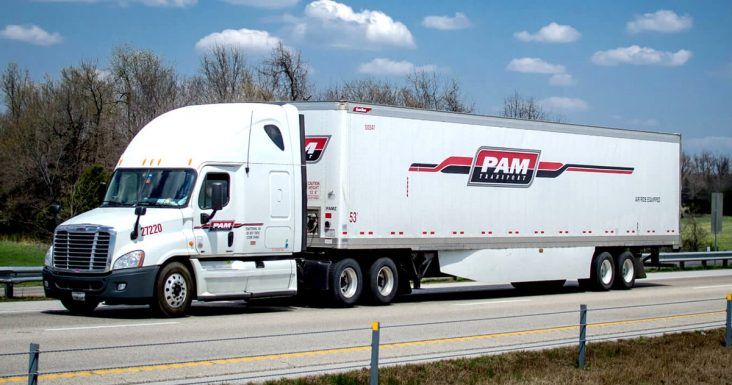P.A.M. Transportation Q1 profit craters 94%; revenue down 17%
by April 18, 2024 4:52 pm 890 views

Tontitown-based carrier P.A.M. Transportation Services Inc. posted double-digit declines in earnings and revenue in a challenging first quarter as the company’s stock fell to a 52-week low.
After the markets closed Thursday (April 18), P.A.M. reported that earnings fell by 94.6% to $281,000, or 1 cent per share, in the first quarter from $5.23 million, or 23 cents per share, in the same period last year. Revenue decreased by 17.6% to $182.59 million from $221.72 million.
“The truckload market continued to be extremely challenging during the first quarter of 2024, characterized by shippers’ continued success in leveraging an overcapacity market to their advantage to attain rates at or below cost,” said President Joe Vitiritto. “This market backdrop, coupled with weather disruptions early in the quarter that drove cost increases and reductions in equipment utilization, created a tough environment to get traction in efforts to improve earnings.”
“We continue to intensely focus on cost reduction, opportunities to gain efficiency and market positioning to maximize the benefit of an improving freight environment when that occurs,” Vitiritto added. “We appreciate the hard work and dedication of our employees as we work through this tough economic cycle.”
In the company’s logistics operations, total revenue fell by 13.9% to $58.76 million from $68.25 million. Operating ratio, or operating expenses as a percentage of revenue, rose to 93.9% from 88.8%.
Following are other metrics in the carrier’s first quarter compared to the same period last year:
- Total loads fell narrowly to 102,200 from 102,430.
- Revenue per mile fell by 11 cents to $2.22.
- Operating ratio increased to 104.2% from 99.3%.
- Average company-driver trucks fell to 1,895 from 2,051.
- Average owner-operator trucks declined to 365 from 389.
Shares of P.A.M. (NASDAQ: PTSI) closed Thursday at $13.98, down 38 cents or 2.65%. In the past 52 weeks, the stock has ranged between $13.88 and $28.77. On Thursday, it hit the 52-week low.
